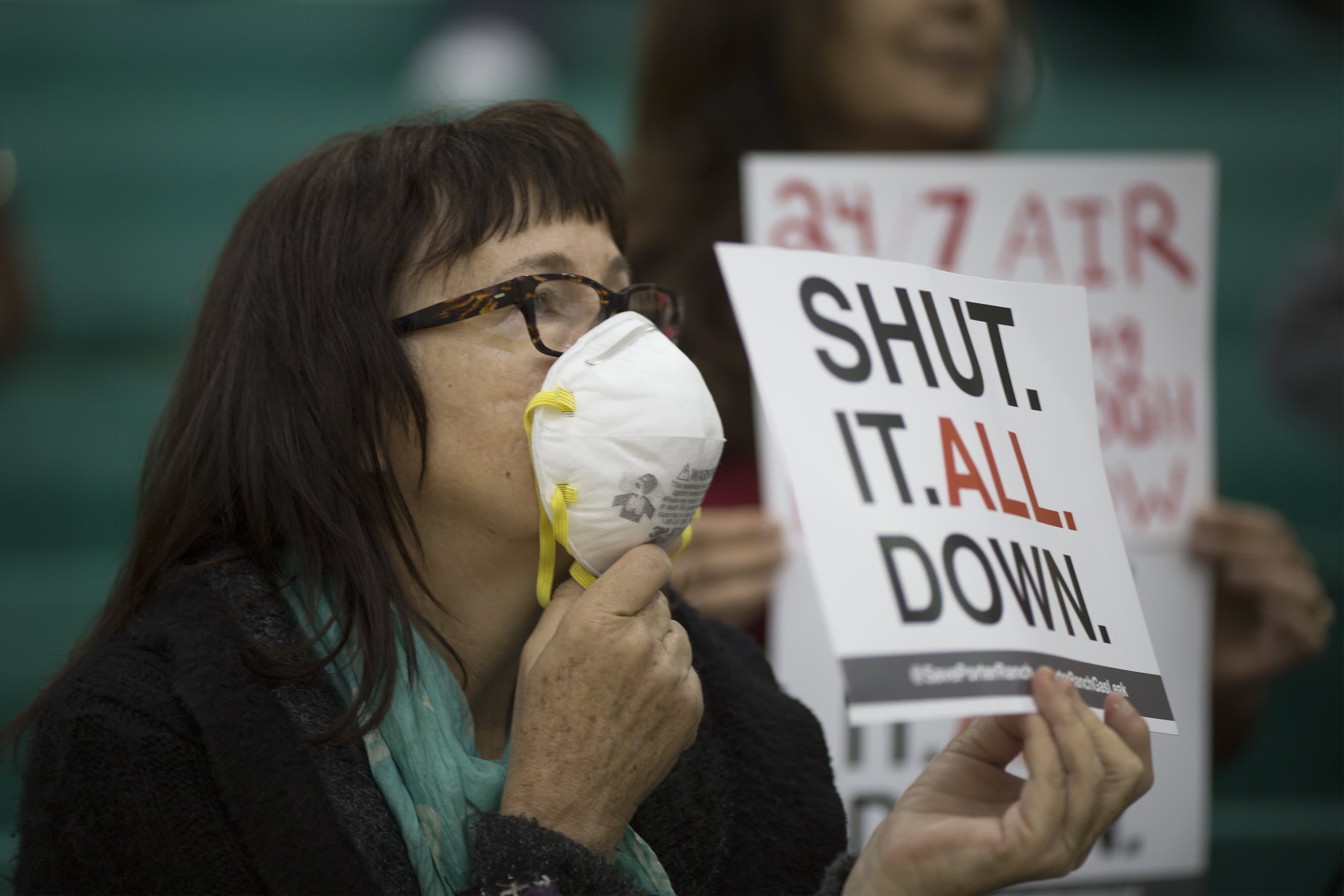The Trump administration on Thursday weakened Obama-era regulations designed to reduce climate-warming methane gas emissions from oil and gas fields.
The Environmental Protection Agency’s new rule, which has been in progress for over a year, would eliminate federal requirements for oil and gas companies to monitor and repair methane leaks from pipelines, storage facilities and wells.
EPA Administrator Andrew Wheeler announced the rollback to the 2016 rule at an event in Pittsburgh, Pennsylvania, home to the country’s booming natural gas reservoirs and a key battleground state for the November presidential election.
“EPA has been working hard to fulfill President Trump’s promise to cut burdensome and ineffective regulations for our domestic energy industry,” Wheeler said. “Regulatory burdens put into place by the Obama-Biden Administration fell heavily on small and medium-sized energy businesses.”
The methane pollution reversal is latest move by the administration to weaken a slew of environmental regulations, a longtime effort that has not been hindered by the coronavirus pandemic.
In July, the administration finalized a rollback to the country’s landmark environmental law, the National Environmental Policy Act, in order to speed approval for federal projects like pipelines, highways and power plants. The administration has weakened more than 100 environmental rules and regulations since 2016.
Scientists say that rising levels of methane, a greenhouse gas that is 84 times more potent than carbon dioxide, is a main driver of climate change. Methane accounts for 10% of the country’s greenhouse gas emissions. Globally, 60% of methane emissions are from human activity.
“As with Covid-19, the Trump administration is ignoring science to gut oil and gas methane pollution safeguards,” said Lauren Pagel, policy director at Earthworks, which tracks methane leaks at oil and gas sites. “But as with Americans dying from the Covid crisis, optical gas imaging shows the oil and gas methane pollution that is fueling the climate crisis.”
The sustained increase in methane, combined with other greenhouse gases, could heat up the atmosphere by 3 to 4 degrees Celsius by the end of the century, well above the Paris climate accord goal to keep global warming below 2 degrees.
“The Trump administration’s rush to wreck even modest methane regulations is a transparent political move, a favor for some of his biggest political backers,” said Charlie Cray, a researcher at Greenpeace U.S.A., an environmental non-profit.
“We need a president willing to stand up to fossil fuel companies, not a depraved climate denier and industry toady intent on rolling back restrictions on one of the primary drivers of climate change,” Cray added.
The relaxed regulation is a victory for the oil and gas industry, which has seen a major drop in prices and demand amid an economic downturn, though some big oil and gas companies oppose the rollback measure. Proponents of the rule include smaller oil and gas companies that the regulations are too expensive.
Frank Macchiarola, a senior vice president for the American Petroleum Institute, a major fossil fuel lobby, said the company supports the EPA’s methane revision: “Our industry continues to drive down methane emissions from operations while meeting America’s energy needs every day,” he said in a statement.
The oil and gas industry is responsible for almost 30% of the country’s methane emissions, according to the EPA.
Some of the larger industry players, including Exxon, BP and Shell, have publicly opposed the rule, citing their own corporate pledges to curb methane leaks and the industry’s contribution to climate change.
President Donald Trump’s new rule on methane pollution, along with other environmental regulatory rollbacks in the second half of 2020, could be swiftly reversed if former Vice President Joe Biden wins the November presidential election and Democrats win control of the Senate.
“To avoid climate catastrophe, we must stop permitting oil and gas production as part of a managed decline of all fossil fuels,” Pagel said. “Until then, Trump’s rollback increases pressure on both states to act individually, and any future president to take more drastic national measures.”
More than 25% of the global warming over the past few decades has been driven by methane gas, with shale gas development in North America causing about one third of the total surge in global methane emissions in the past year, according to Robert Howarth, a professor of ecology and evolutionary biology at Cornell University.
“Unfortunately, methane emissions are increasing rapidly and the oil and gas industry is clearly part of the problem,” Howarth said.
“The decision by the Trump administration to rescind regulations on methane emissions is dangerously reckless,” he added.
